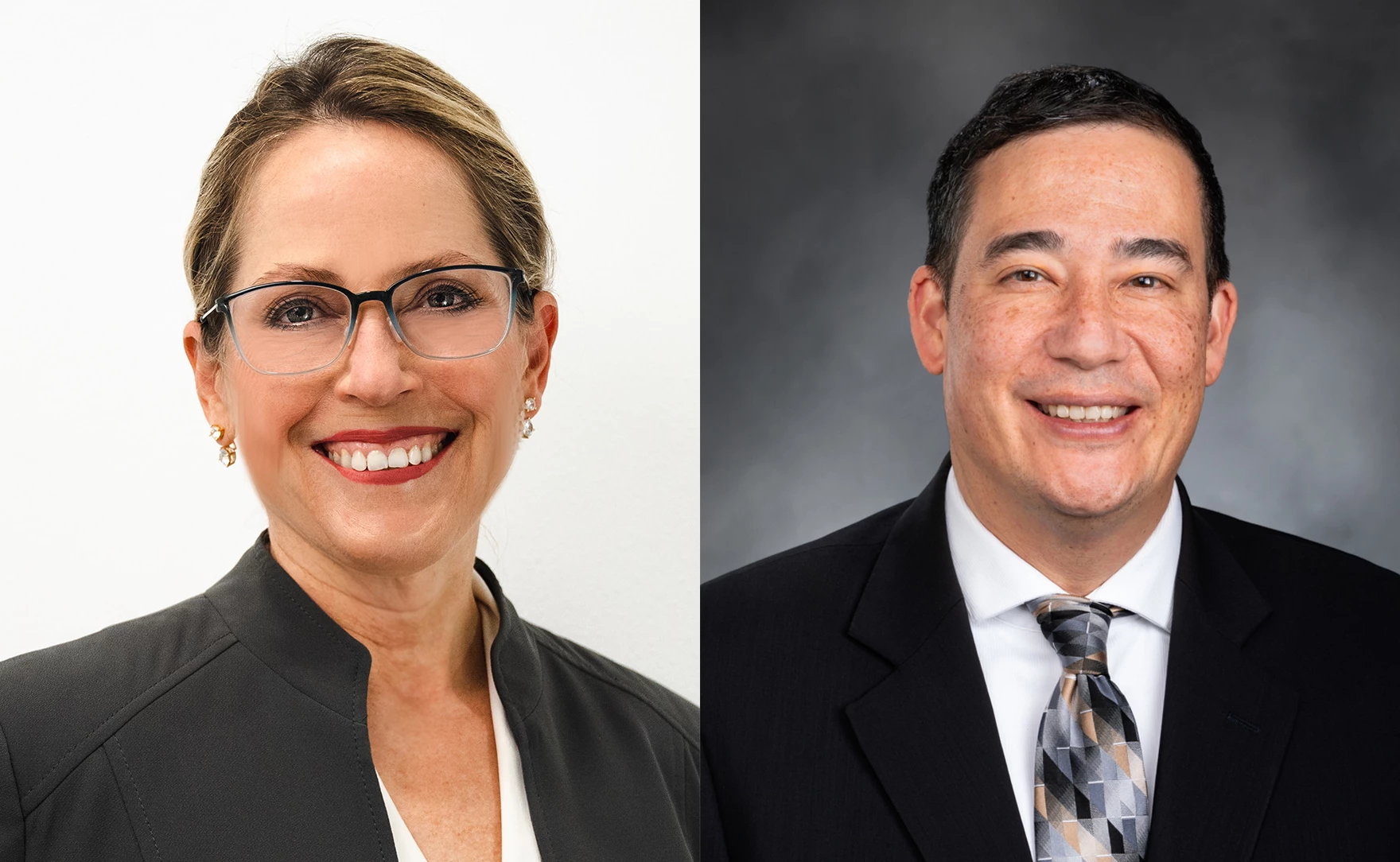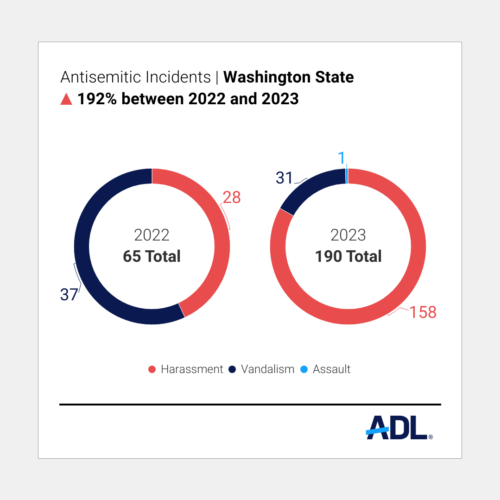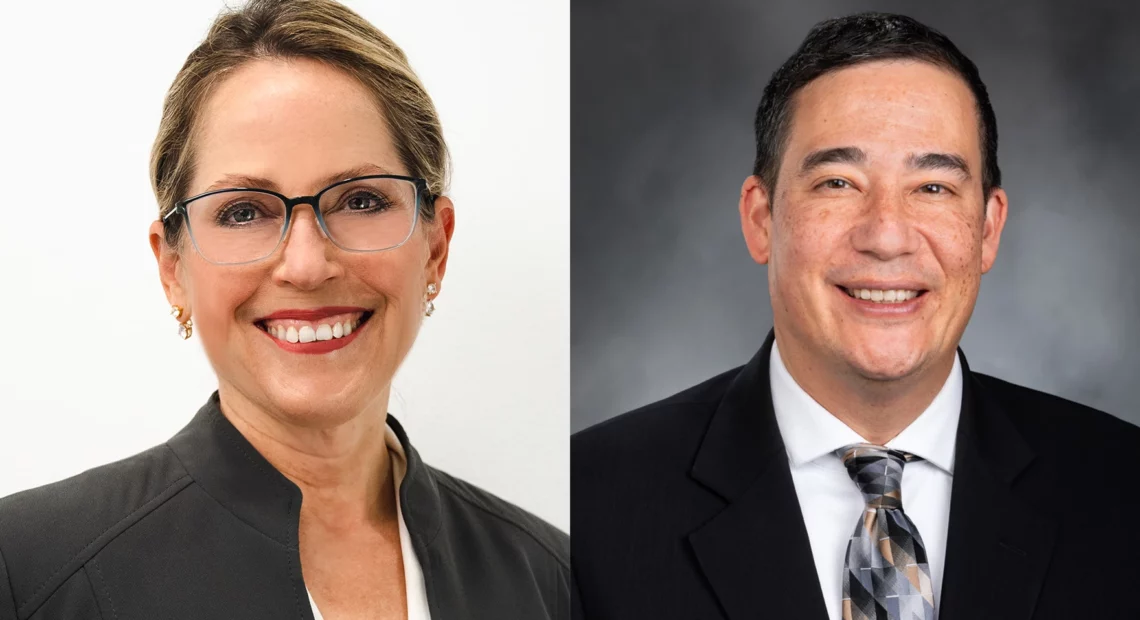
Partisan Election Officials, or Non?
Summary
Nonpartisan challenger Julie Anderson wants to make the job independent from political party affiliations. Her opponent, Democratic incumbent Steve Hobbs says it's an unnecessary change. County auditors and sheriffs associations are also chewing over party labels and what those labels convey about the leanings of their offices.
Listen
(Runtime 4:34)
Read
Should the top elections official in Washington state officially be a nonpartisan? That’s one difference between the top two finalists running for Washington Secretary of State.
Nonpartisan challenger Julie Anderson wants to make the job independent from political party affiliations. Her opponent, Democratic incumbent Steve Hobbs says it’s an unnecessary change. County auditors and sheriffs associations are also chewing over party labels and what those labels convey about the leanings of their offices.
You already know that elections directors at the county and state level are on the hot seat due to persistent questions about the integrity of the vote. Anderson said one answer to build trust among voters could be to make the state’s top election officer and county auditors officially nonpartisan. She compared the role to an election umpire impartially calling balls and strikes.
“I don’t think it makes sense – and voters tell me it doesn’t make sense – for the secretary of state to belong to a team,” Anderson said.
Anderson is wrapping up her third term as Pierce County Auditor. County voters made that a nonpartisan position in 2009. This angle came up in multiple debates over the summer.
“That doesn’t mean that political folks aren’t going to run, but it sets a signal that the expectation is that this is a professional, ministerial office that applies the law and doesn’t make the law,” Anderson told viewers of an online candidates forum hosted by the League of Women Voters.
Changing the office of secretary of state to nonpartisan would require an act of the Legislature. If she wins in November, Anderson said she will ask Washington state lawmakers to make that change. On this she differs with her opponent, appointed incumbent Steve Hobbs.
“I take a rather unique stance. I don’t care if it’s partisan or nonpartisan. I’m going to operate the way I’m going to operate,” Hobbs said.
Hobbs argued the person you elect is more important than the label.
“We had three great secretaries of state who were Republican and they worked across the aisle,” Hobbs elaborated during a debate hosted by the Association of Washington Business. “It’s about being bipartisan, being able to reach a decision by bringing all people in and ideas.”
Hobbs and Anderson are running to serve out the remaining two years of former GOP Secretary of State Kim Wyman’s term. Wyman left last fall to take an election security job in the Biden Administration. Outgoing GOP state Rep. Brad Klippert launched a write-in campaign for this position last month after no Republican advanced to the general election.
A candidate who lost in the primary, Democrat Marquez Tiggs, said if the secretary of state is nonpartisan, it could be harder to discern which contenders have political strings attached.
“If you have this partisan label on this position, at least you know where they stand,” Tiggs commented during the summertime debate hosted by the League of Women Voters.
Not just a state government issue
In the Pacific Northwest, most local elections offices are overseen by an elected county auditor or clerk. In Washington state, unlike in Oregon, that’s a partisan office except in half a dozen “home rule charter” counties, which include populous King, Pierce and Snohomish counties.
Earlier this year, Cowlitz County Auditor Carolyn Fundingsland along with other interested colleagues drafted proposed legislation to make the position of county auditor nonpartisan statewide along with the secretary of state.
“We are administrators at this level. We do not set policy and we don’t make partisan decisions,” Fundingsland said in an interview Tuesday. “It appears to be more fitting for us to be nonpartisan, in comparison to say city council members who do make policy decisions — and they are nonpartisan offices.”
Fundingsland said the proposed change is in limbo at least until after the November election, and needs a champion in the Legislature to carry it forward. She solved the issue for herself in the meantime by running for reelection in Cowlitz County as an independent.
County sheriffs and county coroners who run for office in partisan elections have also teed up the idea of converting wholesale to nonpartisan. Again, that would take an act of the Legislature.
The partisan politicians who fill the Washington Legislature have been unfriendly to the proposed change when it has come up before. Plus, the major political parties want to keep the status quo.
Washington State Democratic Party Chair Tina Podlodowski said “given the state of democracy right now, it’s important to get a label,” especially on down ballot races that might not receive the attention they deserve. The Democratic Party for now would oppose making elected offices such as secretary of state, county auditor or sheriff nonpartisan, she said.
“People with extreme beliefs — such as election deniers and constitutional sheriffs — often hide behind the non-partisan label to earn support by confusing voters,” Podlodowski said Wednesday. “Candidates who are linked to a political party are accountable not only to the associated party’s platform and values, but its members as well.”
Secretary of State candidate Anderson said she believes political parties don’t like to make additional positions nonpartisan because it would shrink their bench and influence.
Anderson said she got questions from all sides about her leanings when she put “nonpartisan” with her name.
“What flavor are you really?” is how a phone caller put it recently, Anderson said.
“People are unsure what to make of me,” she continued. “I knew that this would be tough.”
Anderson has faced questions about past endorsements and alignments as she presents herself today as appropriately distanced from political parties. She publicly endorsed Republican Kim Wyman for Secretary of State in 2016 and 2020. Before that, Anderson acknowledged caucusing with Democrats in 2008 to support Barack Obama for president and said she served as a Democratic Precinct Committee Officer for one year in 2002.
In a statement emailed to public radio Tuesday, Anderson explained she endorsed Wyman because of Wyman’s extensive hands-on experience in elections administration. Anderson said she ceased Democratic party involvements once she transitioned to elected executive office in 2009.
The duties of secretary of state go beyond election supervision, but that aspect has been the focus of the campaign in Washington state unsurprisingly. Elsewhere around the country where the office is on the ballot this year, candidates for secretary of state are receiving more scrutiny because of their role refereeing the contested 2020 presidential election and the expectation of more such drama in 2024.
A poll released Tuesday by a small nonprofit — the Election Reformers Network — found that a wide majority of Americans want election administrators to be free from close party ties.
In the online survey of 1,498 likely voters, over two-thirds of respondents (including 66% of Democrats, 69% of Republicans and 70% of independents) said it’s difficult to trust the impartiality of election officials who are elected with the support of a political party. When asked if they believed their own state election officials would settle an election dispute fairly, barely half (55%) said yes, according to the poll commissioned by the Bethesda, Maryland-based good government group.
Related Stories:
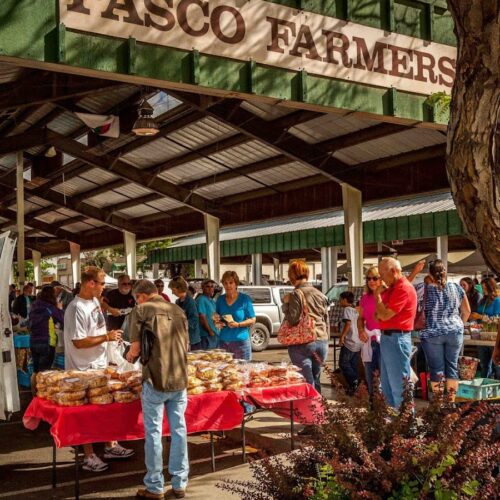
Concejo elimina Downtown Pasco Development Authority
El Concejo de Pasco decidió por unanimidad disolver Downtown Pasco Development Authority (la autoridad encargada del desarrollo del centro de la ciudad), durante una reunión ordinaria celebrada el pasado 15 de abril. Continue Reading Concejo elimina Downtown Pasco Development Authority

Pasco City Council dissolves Downtown Pasco Development Authority
The Pasco City Council unanimously decided to dissolve the Downtown Pasco Development Authority, after a public hearing this week. The Authority had been examined for months, and a state audit questioned its administrative management. Continue Reading Pasco City Council dissolves Downtown Pasco Development Authority
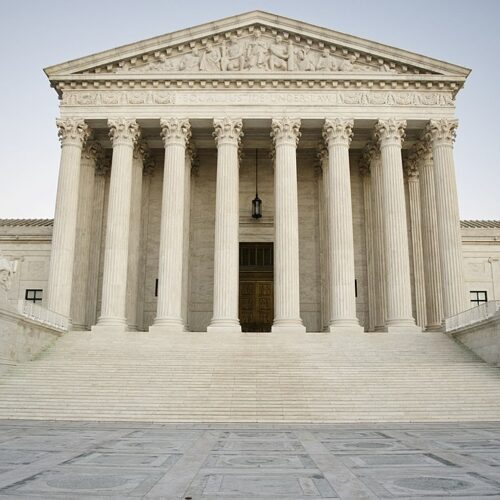
Idaho doctor: Abortion access ‘integral to the practice of OB-GYN’
Idaho has one of the strictest abortion bans in the country. On April 24th, the U-S Supreme Court is scheduled to hear oral arguments in a case to decide whether Idaho’s ban violates a federal law mandating emergency care. Continue Reading Idaho doctor: Abortion access ‘integral to the practice of OB-GYN’

